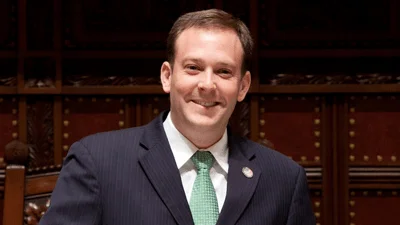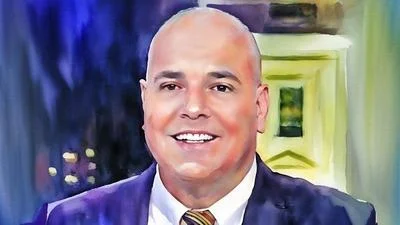Stone Washington, research fellow, Competitive Enterprise Institute's Center for Advancing Capitalism | X
Stone Washington is a research fellow at the Competitive Enterprise Institute's Center for Advancing Capitalism. He worked at the U.S. Securities and Exchange Commission and the Manhattan Institute.
This transcript has been edited for length and clarity.
Federal Newswire: What is the concept of a proxy advisory firm?
Washington: Proxy advisory firms are essentially private consulting firms for corporate interests and corporate developments. As we understand them today, they exist with two major firms or essentially a duopoly of firms. One is called Glass Lewis, and the other one is called Institutional Shareholder Services, but they mostly go by ISS for short.
They basically control about 97% of the market for proxy advisory services. They issue recommendations to shareholders of public companies about how they should vote on certain proposals that a corporate board would consider in a given year. These firms issue recommendations to the shareholders.
The shareholders have time to consider certain proposals or even advance certain proposals. Then those are brought before the board of the corporation on what's known as a proxy ballot. That's considered during an annual process, usually an annual meeting by the corporate board, to vote on certain proposals. These proxy advisors have a really great degree of influence on these proposals.
Federal Newswire: How do the firms differentiate from one another?
Washington: A big issue with the proxy advisory market is that it's so narrow and constrained to these two large firms. There are a number of other third options in other proxy advisors that are smaller, like Egan Jones and Strive Asset Management, which was founded by Vivek Ramaswamy, the former presidential candidate.
But most people just really know about ISS and Glass Lewis. They both have a strong degree of support for ESG, [or] environmental social governance proposals. In the past [they] have supported around 75% of proposed, environmental and social measures. They adopted a lot of that from an activist group called Share Action, which issues recommendations on ESG.
There's not much understanding of other middle of the road or non-political proxy advisors like Strive Asset and Egan Jones. They pride themselves on making recommendations that are nonpolitical, to develop and grow the shareholders’ interests in a company and promote shareholder value. A problem with ISS and Glass Lewis is that they often issue recommendations that are policy interests [and] might actually ignore the shareholder value that an investor has in a company.
Federal Newswire: When were proxy advisory firms created?
Washington: I know they really came on the scene in the early 2000’s and the Securities and Exchange Commission, or the SEC, really took notice of them in 2003 when they passed a rule that affected how they can engage with investors in the market.
Federal Newswire: Do these firms impact views of capitalism?
Washington: Yeah. These environmental activists look at certain practices that they perceive to be detrimental to public health. They have more of a narrow, one-set approach to mitigating climate change, using companies as vehicles to advance climate change mitigation strategy. This is an issue in the 21st century. But even back in the 20th century, we had something like a precursor to ESG called “corporate social responsibility.”
Early developments of this ‘conscientious capitalism,’ or capitalism that looks like [what] Milton Friedman said was the moral basis for capitalism, which is to maximize profits for the shareholders. They looked away from that and said, “no, companies should do more than just maximize profits.”
They should look more at developing a better environment for the communities that are being impacted by the commercial activities and even maybe forgo certain commercial activities in order to ensure environmental justice or clean out certain aspects that are affecting the environment. That's really developed into what we have today.
Federal Newswire: What does CEI’s Center for Advancing Capitalism do?
Washington: [The] Center for Advancing Capitalism is primarily run by my colleague, Richard Morrison, a senior fellow at CEI. I contribute some of the work as well.
The Center promotes…the true moral basis of capitalism, which is to serve the best interests of the shareholders of the company, and to grow the value of a company over time. [We] promote certain articles, literature, videos, and different interviews.
The work that we're doing at CEI seeks to bring people back to an understanding of what capitalism is. What is capitalism meant to serve? Also doing this on the basis of promoting free enterprise or free markets. We argue that public companies are best served with as little or no regulatory intervention by financial regulators like the SEC, CFPB, or the FDIC.
We promote evidence-based research that shows a lot of the flourishing of companies comes about when there's little or no regulatory involvement from these financial regulators. We promote that through blog posts, op-eds, interviews and other things like that.
Federal Newswire: Where can people go to follow your work?
Washington: If you go to my page and see my blog post, op eds, and larger policy research studies, I even published a study on the climate disclosure rule called, “Climate Disclosure Spam.” You can also find me on social media on Twitter @StoneZone47. Information about my Mercatus work is on my LinkedIn page.









